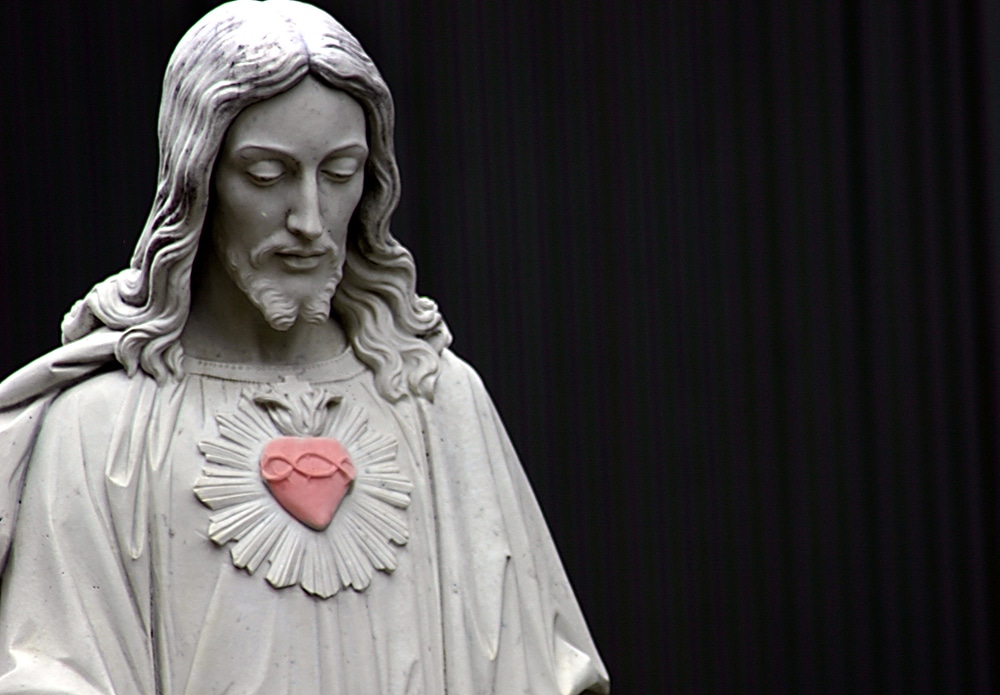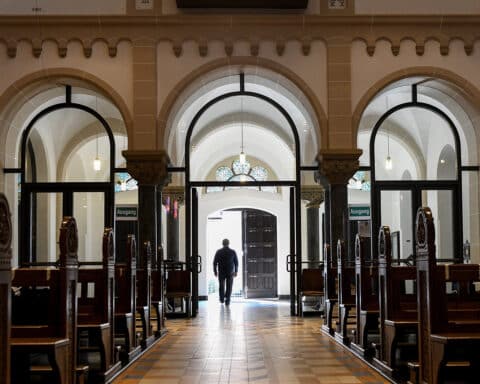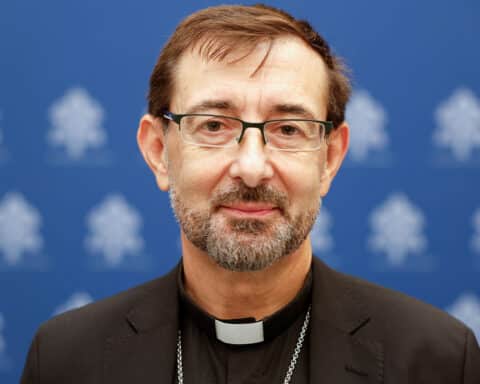For the Catholic Church, June is a month devoted to the Sacred Heart of Jesus — the merciful and loving heart of the one who lived, suffered and died so that we might one day join him in heaven. These weeks are a special opportunity to conform ourselves to Jesus’ heart with the hope of making our hearts like his. “In the Heart of the Lord,” writes Bishop Donald Hying of Madison at Simply Catholic, “we experience the overwhelming mercy of God and His infinite desire to be in relationship with us.”
It is not the Sacred Heart of Jesus, though, that most of us hear about during June — especially in recent years. Rather, for 30 days, we are inundated with rainbows, flags and the mantras that “love is love” and gender is “non-binary.” Lesbian, Gay, Bisexual, Transgender and Queer Pride Month, as June has now been formally declared by the first Catholic president to occupy that office in more than 50 years, is an inescapable cultural obsession that forces those who dare disagree with its fundamental message into the same shadows from which our culture proclaims all people — provided you toe the acceptable party line — should be liberated.
But isn’t the fundamental message of Pride Month to honor the dignity of individuals who have long been marginalized? Is that not a program that the Catholic Church, which honors the truth that every human being is made in the image and likeness of God, should support?
The dignity of all human beings is a truth that we must absolutely proclaim and defend if we are to be authentic followers of Christ. But this truth does not extend to the acceptance, encouragement and celebration of sexual relationships between people of the same sex and the normalization of gender dysphoria.
Catholics have to be honest — and yes, even proud — about the truths that our Church teaches. It’s not easy. The pull of the culture is loud, and homosexuality and gender are the third rail of catechetics. Because these topics are so sensitive, few people want or know how to handle them, with the inevitable result that the Catechism’s phrase “intrinsically disordered” gets tossed around with little context and even less understanding. Again, it’s not easy. But it is simple. God created us male and female to be fruitful and multiply (Gn 1:27-28). We should rejoice in God’s great plan for the world.
In times such as these, the Church needs to speak strongly with a voice that makes it clear that cultural dominance is not necessarily the same thing as truth. And this truth cuts across all sorts of moral issues from abortion to contraception to same-sex attraction and gender issues. Abortion, an act of taking innocent, defenseless life, for whatever reason, is wrong. Artificial contraception, the use of artificial means to knowingly prevent pregnancy, is wrong. Same-sex marriage, the legal joining together of both sexes under the guise of matrimony, is wrong. A spectrum of gender is a fabrication. This is the truth revealed to us by God, and it is a truth that we must proclaim, this month and always.
Two additional things. First, we must acknowledge that the Church has been slow to properly respond to those who identify as LGBTQ+. They are people worthy of love and support, and they have too often not been ministered to effectively in our parishes. (A coming In Focus in these pages will give examples of how this outreach has changed for the better in recent years.) Only through welcome and effective ministry can we bring the truth to them. Second, we must never turn a blind eye to the persecution and mistreatment of any of God’s sons or daughters, including those who identify as LGBTQ+. Such behavior is disgraceful and should be categorically condemned.
The bottom line is that the real answer for those experiencing same-sex attraction and gender dysphoria cannot be found in Pride Month. It can, however, be found in Jesus’ Most Sacred Heart, source of all consolation, and fountain of life and holiness. And that is where our true pride should lie.
Our Sunday Visitor Editorial Board: Gretchen R. Crowe, Scott P. Richert, Scott Warden, York Young





